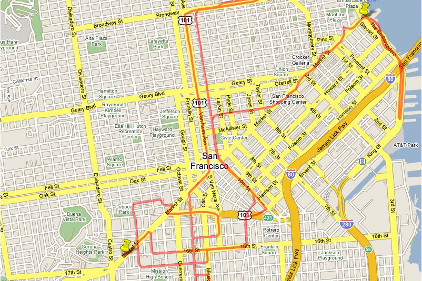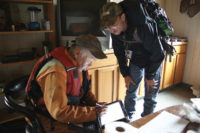Talking GPS: Technology for a Safer, More Efficient Business
GPS tracking is about more than just ensuring that trucks are getting to jobs in an efficient manner

 “The GPS component is literally a component of a business solution.”
“The GPS component is literally a component of a business solution.”
That’s Wyn Partington, Director of Marketing, NexTraq, a GPS provider that works with the likes of ServiceMaster, among other restoration companies and businesses in the service industry.
But as you’ll discover by reading on, GPS tracking is about more than just ensuring that trucks are getting to jobs in an efficient manner – the technology also plays a big role in safety, worker accountability and cost savings.
Yes, as Partington says, a GPS component is truly a component of a business solution – if it’s used in the right way.
“Business owners, CFOs, CIOs, operations managers - they’re definitely more in tune with this because they see the advantage, not just from bottom line but from a better run company,” he says.
Here’s what else Partington had to say about GPS tracking in the service industry:
On holding workers accountable: We don’t like to use the word “big brother,” but management needs to know where everybody is. This takes away (inappropriate) behavior and allows you to condition drivers and have learning moments with drivers. Companies want to know what their workforce is doing.
On the technology’s role with worker safety: You know where somebody is at all times. If there is an incident, if somebody hasn’t pinged in, unfortunately it happens – there are accidents. That’s often an overplayed part of it – the health and safety issues that (GPS) can help address.
There’s also a driver safety scorecard. It detects rapid acceleration, hard braking, severe cornering. This can be used as a teaching moment to introduce a safety component into your company. This also has the potential to lower insurance premiums because it shows the insurance companies that you’re being proactive with safety.
On billing accuracy: We have alerts set up for when (workers) arrive at a stop and when they leave a stop. To the manager at the company, that’s great. For the customer, it’s also an easy way of them being able to verify billing information. If I turn up at 10 and I leave at 11:30 and I bill 2 hours and the customer says, “They weren’t here 2 hours,” it’s easy to pull the GPS records and the report. We like to promote the idea that you get accurate billing from a well-run company.
On fuel savings: We have fuel integration that really helps paint an overall picture for fuel. It helps you identify trucks that are less fuel efficient than they should be, helps you identify the people that are driving at speeds that you’re losing money. The biggest component is idling. Many workers will leave a vehicle running to keep temperature in store. You talk about zero miles per gallon…
If you have a fleet of vehicles and you can get just one more job done per vehicle because you can route them and schedule them correctly… that’s a lot more money back in the company than they could have previously got by having a system in place. If you implement a GPS tracking system that has fuel monitor tracking in place, you can save, on a typical vehicle, $35 a day - just by monitoring your fuel.
On vehicle maintenance: We have reminders and alerts built into the system (so) you get a proactive, preventative maintenance schedule in place.
Looking for a reprint of this article?
From high-res PDFs to custom plaques, order your copy today!








